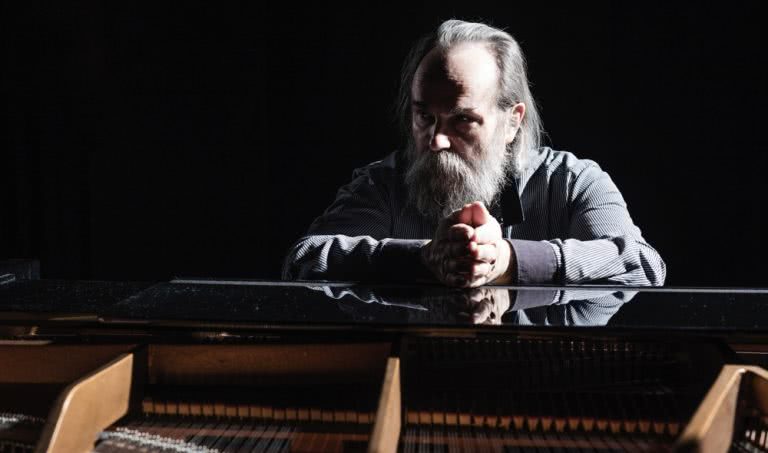Earlier this year, celebrated continuous pianist Lubomyr Melnyk took to a stage before a jam-packed audience in Hobart to tell stories.
Sometimes he used the keys of his piano to unfurl the tales. At other points he used words, describing the sometimes complex, sometimes startlingly simple histories that drive his back catalogue. But in either case, the sum effect was the same: the audience, hypnotised, was drawn into a world wholly of Melnyk’s making, one where beauty is always attainable and God is close.
He also mentioned that humans have a natural tendency to avoid the exquisite; to look down when they could be gazing up. How, then, does Melnyk believe that we can always stay present, tied to the moment and the beauty of it all?
“I am not sure I can tell people how to do this,” Melnyk admits. “But loving God is definitely a prerequisite. This can take many forms, even without any active faith. To see beauty requires seeing truth.”
This reading of the world means Melnyk often finds himself actively opposed to those who traditionally identify as ‘scientists’, as well as those with a blind belief in technology. A self-confessed hippy, he spurns any analysis of music, art or politics that simply requires faith in facts, and instead embraces lines of thought that accept life’s essential unknowability.
“Darwinians are really lost in a dark place with no windows. A dark place they have walled around themselves not by scientific thinking and resolutions, but by deep and unscientific prejudice. But truth is actually obvious … and now, because of the heavy propaganda, intelligent people are too afraid to admit the truth to themselves even for fear of persecution. If only we had the child to shout the truth!”
For Melnyk, truth also comes in the form of music – particularly continuous music, the multi-toned, note-heavy style of playing he has pioneered over the course of a 40-year career. “Seeing beauty can be very difficult for some people. It takes time to achieve. But continuous music I believe helps one to reach a better state of mind, so that the soul and the eye can become enabled to see things and understand things.
I am not saying this is the only way to do this, but it is the way of which I know. There is something wonderful and magical in this music, which touches the soul in a special way.”
Of course, by contrast, Melnyk believes there is music out there that can have the reverse effect: music with the ability to enact great harm. “Music changes the fibre of human intelligence. Music can make people very, very stupid, or very, very intelligent. It is really obscene how politicians will jump up and down like aggravated monkeys if someone smokes a cigarette, but stay totally unconcerned while certain kinds of music turn the brains of millions of children and youth and adults into mushy porridge. As people become stupider, so does the music they listen to. And as humanity becomes stupider, it becomes harder and harder to see beauty.”
Nonetheless, despite the evil out there, Melnyk is convinced that music has the power to impact real change – and ultimately to save us all. “Music can change the world,” he says. “Especially politically … as you read these things, you must understand that I am a product of continuous music. Continuous music is not really a product of me. So if I see beauty in the spaces between the fibres of existence, it is because continuous piano playing has made it so.”
Lubomyr Melnyk performs as part of Sydney Festival 2017 at City Recital Hall on Saturday January 28.



































